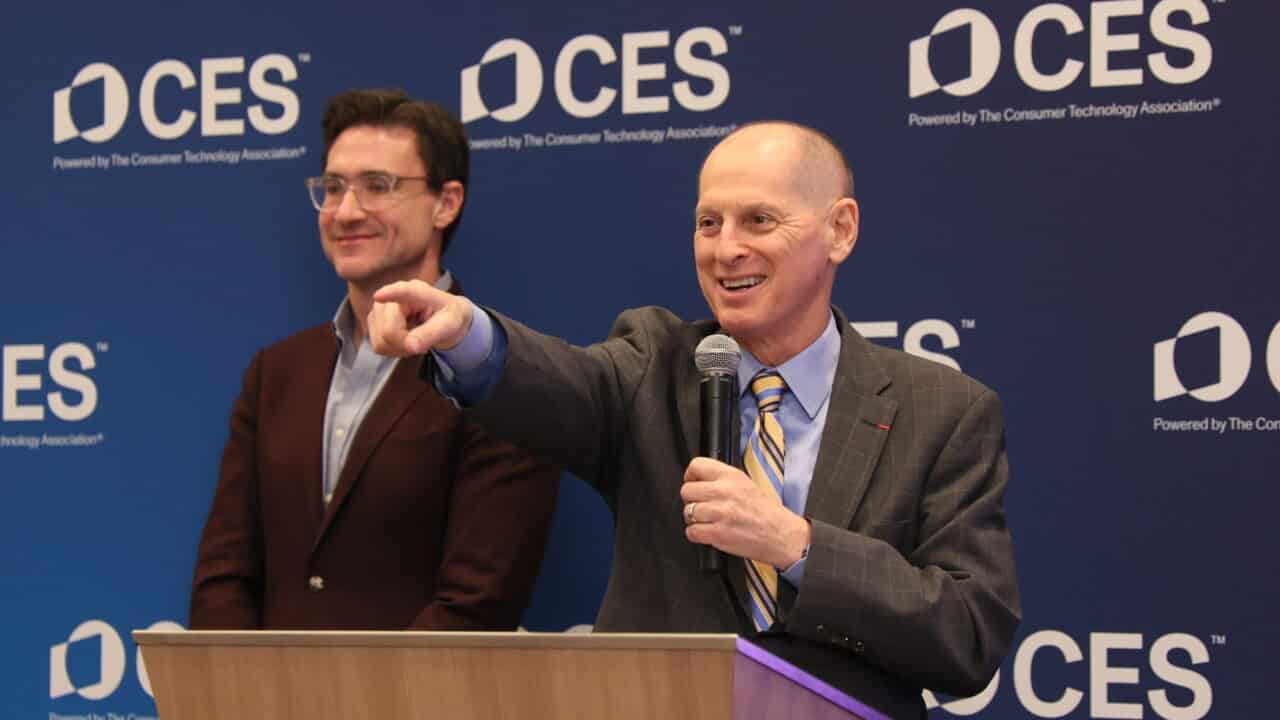
How Artificial Intelligence in Retail is Transforming Brand Ambassador Programs
Retail brands have dramatically changed their customer connection strategies. Artificial intelligence in retail goes beyond reshaping shopping habits – it redefines the entire concept of brand ambassadorship.
Traditional brand ambassador programs worked well but faced limitations from human constraints such as working hours and physical presence. AI-powered solutions now break these barriers and give retail businesses new ways to maintain consistent, individual-specific customer relationships through multiple channels and time zones.
Our complete guide shows how AI reshapes brand ambassador programs. You’ll understand the technology behind these changes and learn practical ways retail businesses can implement these solutions.
Understanding AI Brand Ambassador Technology
Let’s delve into the remarkable technology behind modern AI brand ambassadors in retail. These systems combine an AI ‘brain’ with a 3D character interface that creates a powerful tool to connect with customers.
Core components of AI ambassador systems
AI brand ambassador technology’s foundations rest on three key components:
- An AI engine trained with deep brand knowledge and guidelines
- A natural language processing system for human-like conversations
- An adaptable interface that learns from each interaction
Natural language processing capabilities
NLP has made incredible progress in understanding human language. This technology helps AI ambassadors perform significant tasks like speech recognition, sentiment analysis, and natural language generation. AI ambassadors can understand what customers ask, pick up emotional undertones, and respond in ways that sound human.
Machine learning integration
AI brand ambassadors shine in their capacity to learn and grow. These systems use machine learning algorithms to study behavioral patterns and customer priorities, which leads to more meaningful interactions. They process huge amounts of data to spot trends and adjust their responses immediately.
These AI systems analyze browsing history, purchase records, and interaction patterns to create unique shopping experiences for each customer. The Voice Bots Market, a vital part of this technology, should reach USD 98.20 billion by 2027, with an impressive CAGR of 18.6% during 2022-2027.
The technological components blend naturally to create AI brand ambassadors that hold natural conversations, grasp context, and offer personalized help. They maintain consistent brand representation across every customer touchpoint.
Transforming Customer Engagement Through AI
The retail world today is fiercely competitive, and giving customers an amazing experience is vital to staying ahead. AI is changing how brands build relationships with their customers and makes interactions more meaningful and smooth.
24/7 brand representation
Today’s retail world needs businesses to be available all the time. AI-powered chatbots and virtual assistants give instant, round-the-clock customer support. They answer questions, provide product details, and help with purchases when human agents aren’t available. This constant support means customers get help right away, no matter their time zone or business hours.
Multi-channel presence management
Modern customers connect with brands in many different ways. AI helps brands maintain a consistent presence in channels of all types while tracking and analyzing important metrics. Share of voice measurements across different marketing channels show brands how visible they are in customer conversations. This comprehensive approach helps brands watch and improve their presence at every customer touchpoint.
Personalized customer interactions
Building customer loyalty through personalization really works. Our research shows that 26% of consumers express greater loyalty to brands that customize their marketing based on personal priorities. AI makes personalization possible through:
- Live customer grouping based on behavior and choices
- Product suggestions that match browsing history
- Special offers that reflect how each person shops
AI looks at huge amounts of customer information – what they buy, how they browse, and who they are. This creates shopping experiences that feel truly personal. It goes beyond simple customer grouping and makes use of machine learning algorithms to suggest relevant products and run targeted marketing campaigns that appeal to individual customers.
The results speak for themselves. Customers who feel understood and valued come back to shop again. AI-powered personalization doesn’t just meet customer expectations – it creates experiences that perfectly match each person’s unique preferences and needs.
Building Trust with AI Brand Ambassadors
Trust building in the digital age needs a fine balance between state-of-the-art technology and real human connection. Our implementation of AI brand ambassadors has found that there was no room for compromise when it comes to transparency and authenticity.
Transparency in AI interactions
Being upfront about AI usage is a vital part of consumer trust building. Studies show that 62% of consumers would shop only with authentic brands that stay honest across all channels. These numbers show why we must be clear about AI interactions right from the start.
Trust through transparency grows when we:
- Clearly disclose AI involvement in customer interactions
- Make privacy policies and data usage explanations available
- Update customers about AI improvements to their experience
- Communicate openly about AI limitations and human backup options
Maintaining brand authenticity
Brand authenticity comes from consistent messaging and genuine customer connections. Our experience shows this needs careful thought. AI solutions must arrange themselves with our core brand values and mission.
Balancing automation with human touch
The right balance between AI efficiency and human interaction makes a significant difference. Research shows that 77% of consumers still want to speak with human customer service agents rather than chatbots. This preference explains why we use a hybrid approach to customer service.
Success depends on knowing the right time to switch from AI to human interaction. AI handles routine questions well, but complex issues get transferred naturally to human agents. This strategy has worked well. Take Sephora – they achieved a 4x increase in online sales over six years by combining AI tools with personalized human interaction.
Our implementation strategy focuses on “intelligent handoffs” where AI systems recognize when conversations need human expertise. Customers get the best of both worlds – AI efficiency combined with human empathy at crucial moments.
Future Trends in AI Brand Ambassador Programs
AI is reshaping the retail industry through a technological revolution that transforms how brands connect with customers. The future of AI brand ambassadors shows remarkable developments that will redefine retail.
Emerging technologies and capabilities
Generative AI has become a retail marketing game-changer. This technology transforms content production and campaign processes by enabling rapid creation with faster market delivery. 87% of retailers have already deployed AI in at least one area of their business, and 60% plan to increase their investments soon.
Predicted industry developments
The global AI retail market shows promising growth projections and should reach USD 45.74 billion by 2032. 69% of retailers have reported increased annual revenue from AI adoption, while 72% experienced decreased operating costs.
Our research highlights these key developments:
- AI-powered personalization drives 6-10% faster revenue growth
- Visual and voice search capabilities improve
- Dynamic pricing and inventory management systems evolve
- Advanced fraud detection and security measures strengthen
Integration with metaverse and AR
AI joins with metaverse and augmented reality technologies to create unique opportunities for immersive brand experiences. The AI-powered metaverse enables:
- Real-time language translation for global customer engagement
- Dynamic, evolving virtual environments
- Customized virtual shopping with AI-driven recommendations
AI technologies, including machine learning and computer vision, create unprecedented levels of immersion and interactivity. Brands increasingly turn to AI-powered virtual spaces where customers interact with products in innovative ways.
The retail future focuses on using technology to boost human connections rather than replacing them. These technologies will continue to progress, offering sophisticated and customized brand ambassador experiences through conversational engagement.
Conclusion
AI brand ambassadors mark a revolutionary advancement in how retailers connect with customers. These AI-powered solutions exceed traditional boundaries by offering 24/7 availability and individual-specific experiences through multiple channels. Natural language processing combined with machine learning creates authentic human-like interactions that consistently represent the brand’s values.
The data paints a clear picture. 87% of retailers use AI and report substantial revenue growth, which proves the technology’s effectiveness. Success comes from being open about AI usage and knowing the right moment to switch to human support during complex situations.
Retail’s AI adoption continues to expand rapidly. Market projections show growth reaching $45.74 billion by 2032. The merger of virtual and augmented reality with AI capabilities will create deeper and more tailored shopping experiences.
These developments shape retail’s future rapidly. Learn more about our AI-powered retail solutions in this piece and discover how they can enhance your brand ambassador program. Businesses that accept new ideas while building genuine customer relationships will lead tomorrow’s retail landscape.








